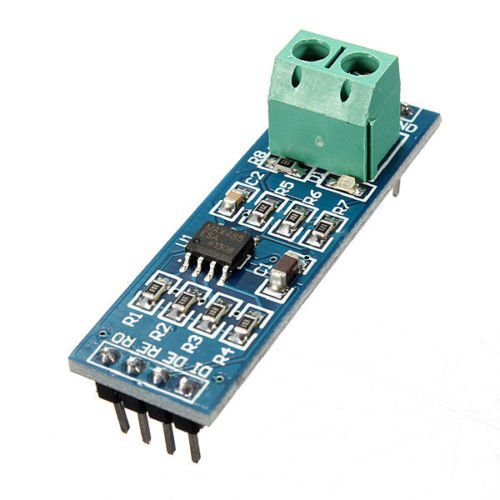There's a popular el cheapo RS-485 module available on the internet:
The cheapo module is good because it's ridiculously inexpensive and "does the job". It's fine for prototyping, however...
The cheapo module is missing some key features:
- RJ45 connector
- Voltage regulators (5V/3.3V)
- Good design
Missing RJ45
You don't need to use RJ45 for your differential pairs, but I like it because it's ubiquitous and cheap. The only danger is connecting an actual ethernet device to that port. It could get ugly, but otherwise I feel like it's a must-have for any RS-485 communication over long distances (ex: 15m).
Missing voltage regulators
The module is powered by 5V and if you want to power a device (ex: WS2812 LEDs) over a long distance, how to you get power to them? Well sure you can pass current through a long thick cable, but you'll see a voltage drop due to the wire resistance. If you need 5V and 1A at the LEDs, how much voltage do you send? 7V? 10V? 12V? well, it depends on the wire gauge, length, material, shielding... your other option is to have a power source near the LEDs, but that's not always possible.
Wouldn't it be easier to just have a voltage regulator near the device?
Missing good design
I didn't want to get to this (I mean really, am I debating the demerits of a $2 module? haha), but the cheapo module has pre-soldered 2.54mm (0.1") pins. This means they must be connected to jumper wires or a breadboard or a homemade perfboard. Even worse, the board is literally too long to fit a typical breadboard, so now you need TWO breadboards for each module.
 Alexander Williams
Alexander Williams
Discussions
Become a Hackaday.io Member
Create an account to leave a comment. Already have an account? Log In.